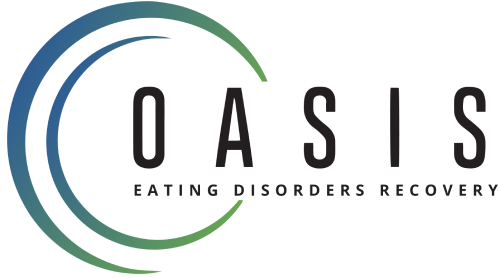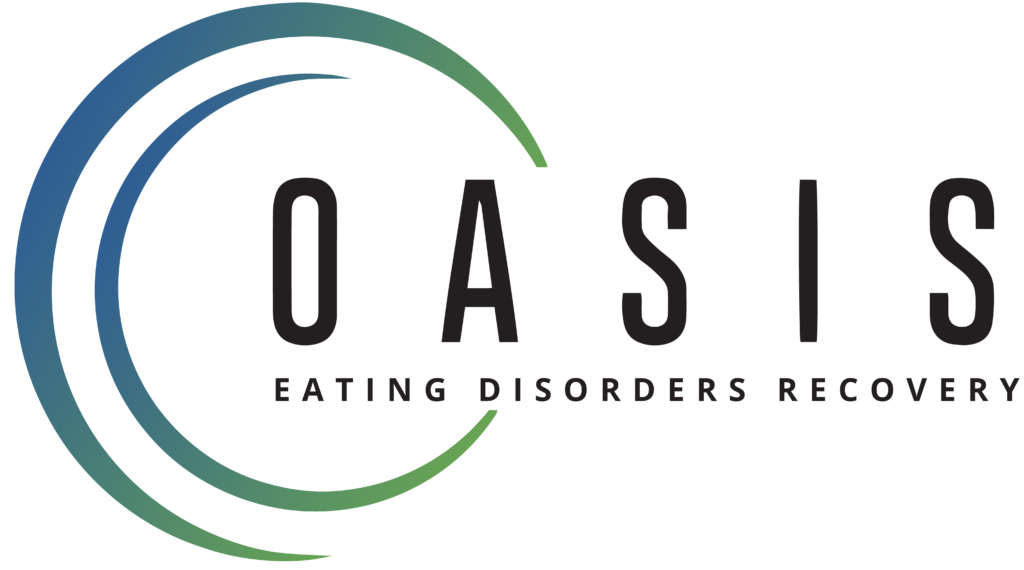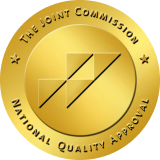Choose Facility
Unraveling the Question: Is There a Cure for Anorexia Nervosa?
Anorexia Nervosa, commonly known as anorexia, is a severe and life-threatening eating disorder characterized by self-starvation, extreme fear of weight gain, and a distorted body image. It is a complex mental health condition that affects millions of people worldwide, permeating every age group, gender, and socio-economic class. As society grapples with understanding and addressing anorexia, one question frequently arises: “Is there a cure for anorexia?”
In this blog post, I’ll explore this question, shedding light on the nature of anorexia, its treatment options, and the journey toward recovery. It aims to provide a comprehensive view of this disorder, emphasizing the importance of early intervention, effective treatment strategies, and the crucial role of support systems in the recovery process.
Understanding Anorexia Nervosa
Anorexia Nervosa, at its core, is a psychological disorder with serious physical consequences. Those who suffer from anorexia perceive themselves as overweight, even when they have significantly low body weight. This distorted body image leads to self-imposed starvation, extreme dieting, and excessive exercise in an effort to lose weight.
The implications of anorexia are multilayered. On a physical level, anorexia can lead to severe malnutrition, organ damage, and even death in extreme cases. Some of the physical symptoms include extreme thinness, fatigue, dizziness, brittle nails, hair thinning, and yellowish skin.
Mentally, anorexia can give rise to anxiety, depression, and other mental health issues. Individuals with anorexia often exhibit an intense fear of gaining weight or becoming fat and may develop obsessive behaviors around healthy food choices and dieting.
The complexity of anorexia as a disorder is immense. It’s not merely about food or weight, but rather, it’s a way for individuals to cope with emotional distress and feelings of lack of control. Sociocultural factors, genetic predisposition, and personal characteristics all contribute to its onset. Understanding anorexia requires acknowledging it as a serious mental health disorder that impacts every facet of an individual’s life and necessitates a comprehensive, multidisciplinary approach to treatment and recovery.
Myths and Misconceptions about Anorexia Nervosa
Despite the prevalence of Anorexia Nervosa, it is often misunderstood, with several myths and misconceptions clouding the reality of the disorder. Some of the most common misconceptions include:
- Anorexia is a choice: Anorexia is not a lifestyle choice or a diet gone too far. It is a severe and life-threatening mental health disorder. People with anorexia don’t choose to have the disorder – it is a complex interplay of genetic, biological, and environmental factors.
- Anorexia only affects women: While anorexia is more commonly diagnosed in females, it affects people of all genders. Men can and do suffer from anorexia, and their symptoms are equally severe.
- Anorexia is just about food and weight: Anorexia is much more than a preoccupation with food and weight. It often serves as a coping mechanism for individuals dealing with intense emotions, stress, or traumatic experiences.
- You can tell if someone has anorexia by their appearance: Not all individuals with anorexia are visibly underweight. People with anorexia can be of average weight or even overweight. Anorexia is characterized more by the person’s unhealthy relationship with food and their body image than their actual weight.
By dispelling these myths and misconceptions, we can foster a greater understanding of anorexia, promote empathy, and encourage individuals who may be struggling to seek help. An informed society is the first step towards more effective support and treatment for those battling this complex disorder.
Diagnosis of Anorexia Nervosa
Diagnosing Anorexia Nervosa is a critical step in the journey toward recovery. Early detection can lead to timely intervention, potentially preventing severe physical and psychological complications. Diagnosis is typically based on physical, psychological, and behavioral signs, and is confirmed through medical and psychiatric evaluations.
Physical signs of anorexia may include extreme thinness, fatigue, dizziness, or other signs of malnutrition. Psychological symptoms can involve an intense fear of gaining weight, distorted body image, and self-esteem heavily influenced by perceptions of body weight and shape. Behavioral indications may include restrictive eating, excessive exercise, and diet pills or behaviors intended to prevent weight gain, such as vomiting or misuse of laxatives.
A medical professional, usually a doctor or psychiatrist, will typically carry out the diagnosis. This process might involve a physical examination, blood tests to check for signs of malnutrition or complications, and a psychological evaluation to assess thoughts, feelings, and eating habits.
It’s important to remember that these signs and symptoms can also relate to other conditions, so a comprehensive examination is essential. If you or someone you know is showing signs of anorexia, seek professional help immediately. Early diagnosis and intervention greatly improve the chances of recovery.
Treatment of Anorexia Nervosa
Treating Anorexia Nervosa is a complex process that requires a comprehensive, multidisciplinary approach. Given the multifaceted nature of the disorder, involving both physical and mental health aspects, successful treatment usually involves a team of specialists, including doctors, mental health professionals, and dietitians.
The primary goal of treatment is to restore the individual to a healthy weight. However, weight restoration is only one aspect of treatment. It’s equally crucial to address the psychological issues related to the disorder, including behavioral symptoms such as distorted body image, self-esteem issues, and unhealthy patterns of thinking.
- Medical Care: This involves regular monitoring of vital signs, hydration level, and electrolytes. In severe cases, hospitalization may be required to manage life-threatening complications of severe malnutrition or to initiate feeding in those who refuse to eat.
- Mental Health Treatment: Psychotherapy, also known as talk therapy, is a cornerstone of anorexia treatment. Cognitive-behavioral therapy (CBT) is often used, which can help the individual identify distorted thought patterns and develop healthier ways of thinking and coping.
- Nutrition Education: A registered dietitian can provide guidance on healthy eating patterns and regular meals, gradually increasing calorie intake to promote safe weight gain.
- Family-Based Therapy: For adolescents with anorexia, family-based therapy can be particularly effective. This approach involves the whole family in the treatment process, helping them understand the disorder and equipping them to support their loved one’s recovery.
The path to recovery can be long and challenging, requiring ongoing commitment from both the individual and their support system. However, with the right help and support, recovery is absolutely achievable.
Different Treatment Strategies
Anorexia Nervosa is a highly individualized disorder, which means that treatment needs to be tailored to the unique needs and circumstances of each person. Here are some of the most common treatment strategies:
- Psychotherapy: This is often the first line of treatment for anorexia. Cognitive Behavioral Therapy (CBT) is the most commonly used form of psychotherapy, helping individuals to recognize and change unhealthy thought patterns and behaviors. Other forms of therapy, such as Dialectical Behavior Therapy (DBT) and Acceptance and Commitment Therapy (ACT), may also be beneficial.
- Medication: While there’s no specific drug to treat anorexia, certain medications can help manage co-occurring conditions like anxiety or depression. It’s important to note that medication is usually used in conjunction with psychotherapy, not as a standalone treatment.
- Nutrition Counseling: Registered dietitians play a crucial role in treatment, providing nutrition education, helping to normalize eating patterns, and guiding safe weight restoration.
- Group or Family Therapy: This form of therapy can provide social support and shared learning experiences. Family therapy is particularly beneficial for adolescents with anorexia, involving the whole family in the recovery process.
- Hospitalization: In severe cases, hospitalization may be necessary to address critical physical complications or initiate feeding. Some individuals may also benefit from residential or partial hospitalization programs, which provide intensive, structured treatment.
- Aftercare and Ongoing Support: After initial treatment, ongoing therapy and support groups can help maintain recovery and prevent relapse.
It’s important to remember that treatment is a process, and what works for one person might not work for another. Open communication with healthcare providers, patience, and persistence are key to finding the most effective treatment approach.
The danger of refeeding syndrome in anorexia treatment and recovery
While treatment for Anorexia Nervosa is critical for recovery, it’s important to be aware of potential complications that may arise during the process. One such complication is refeeding syndrome.
Refeeding syndrome is a serious and potentially fatal condition that can occur when a person with anorexia starts eating again, either voluntarily or through the intervention of a treatment program. As the body adapts to starvation, the reintroduction of food can cause a metabolic shift, leading to severe electrolyte and fluid imbalances that can affect the heart and other vital organs.
Healthcare professionals are well aware of refeeding syndrome and take precautions to prevent it. They usually reintroduce food gradually and monitor the patient closely during the initial stages of treatment. Despite its potential risks, refeeding is a crucial step in the recovery from anorexia.
Addressing co-occurring mental disorders and eating disorders
Another potential complication of treating anorexia is dealing with co-occurring mental health disorders. Many individuals with anorexia also struggle with conditions such as depression, anxiety, or obsessive-compulsive disorder. These co-occurring conditions can complicate treatment and must be addressed concurrently with outpatient treatment for the eating disorder.
Moreover, the risk of relapse is a significant concern in anorexia treatment. Relapses can occur during times of stress or transition, or even without obvious triggers. Continued therapy and support can help manage the risk of relapse.
Despite these challenges, it’s important to remember that recovery from anorexia is entirely possible, and the benefits of treatment far outweigh these potential health complications alone. With careful management by a healthcare team and ongoing support, individuals can overcome anorexia and lead healthy lives.
Recovery from Anorexia Nervosa
Recovering from Anorexia Nervosa is not a linear process. It requires time, patience, and a strong commitment from both the individual and their support system. The timeline for recovery varies widely from person to person, influenced by factors such as the duration of the illness, the individual’s physical health, the presence of co-occurring mental health conditions, and their level of support.
The road to recovery often involves challenges and setbacks. It’s important to note that experiencing a relapse doesn’t mean that recovery has failed. Instead, relapses can provide important learning opportunities, highlighting areas that may need additional focus in treatment.
A crucial part of recovery involves developing a healthier relationship with food and body image and addressing the underlying psychological issues that contribute to the eating disorder symptoms themselves. This often involves learning new coping mechanisms, improving self-esteem, and resolving any co-occurring mental health issues.
Continued therapy and support are vital to stay healthy during the recovery process. This could include ongoing individual therapy, group therapy, support groups, and in some cases, continued medication.
Recovery from anorexia also involves adopting a balanced perspective on health and well-being, moving beyond societal pressures around weight and appearance. It’s a journey towards self-acceptance and nurturing a healthier relationship with oneself.
Remember, recovery is not just about the restoration of physical health but also about rebuilding one’s life and relationships. With the right treatment and support, individuals can recover from anorexia and lead fulfilling, healthy lives.
The Prognosis For Anorexia Nervosa
The prognosis for anorexia nervosa varies significantly among individuals, influenced by a multitude of factors including the severity of the disorder, the individual’s physical health, the presence of any co-occurring other mental disorders or health conditions, and the level of family and social support.
Early detection and intervention significantly improve the prognosis. Individuals who receive treatment in the early stages of the disorder often experience better outcomes. However, even those with chronic anorexia can improve with appropriate treatment.
One of the major risks associated with anorexia is relapse, which can occur during times of stress or transition, or even without obvious triggers. The potential for relapse underscores the importance of long-term treatment and commitment by the individual. Continued therapy, ongoing support, and learning effective coping strategies can help manage the risk of relapse.
Recovery from anorexia is a lifelong journey. Even after reaching a healthy weight and maintaining balanced eating habits, individuals may still struggle with body image or fear of weight gain. Ongoing psychological support and self-care are crucial for maintaining recovery.
It’s important to remember that the journey of recovery is different for everyone. While anorexia can be a severe and life-threatening disorder, with the right treatment and support, individuals can overcome it and lead fulfilling, healthy lives. Hope and recovery are always possible.
The Role of Society and Support Systems in Eating Disorder Recovery
The path to recovery from Anorexia Nervosa is not one that should be walked alone. The role of society and support systems in this journey is pivotal. Family, friends, healthcare professionals, and even the broader community can all contribute significantly to the recovery process.
- Family and Friends: These close relationships form the immediate support system for individuals battling anorexia. Being educated about the disorder can prevent bad diet advice, showing empathy, providing emotional support, and maintaining open lines of communication can help the individual feel understood and supported. Participating in family therapy can also provide families with the tools to assist their loved one effectively.
- Healthcare Professionals: Doctors, therapists, dietitians, and other healthcare providers not only provide treatment for medical complications but also offer a crucial source of support. Their expertise and guidance can help navigate the complexities of the recovery journey.
- Support Groups: These groups can provide a safe space where individuals can share experiences, learn from others going through a similar journey, and feel less isolated. Both online and in-person support groups can be valuable resources for enabling proper feeding and weight restoration.
- Societal Role: Society at large plays a significant role in shaping our attitudes toward body image, food, and eating disorders. Promoting a culture that values health over appearance, challenges unrealistic beauty standards, and fosters understanding and acceptance of mental health issues can contribute to the prevention and recovery from disorders like anorexia and the serious health complications that accompany it.
Embracing the Journey Towards Recovery From Anorexia
There is no one-size-fits-all cure for anorexia. Instead, recovery involves ongoing commitment, support, and a range of treatment strategies tailored to the individual’s unique needs and circumstances.
While the path to recovery can be challenging and filled with obstacles, it’s important to remember that recovery is entirely possible. Each person’s journey is unique, shaped by their own experiences, strengths, and support systems. It’s a process of learning, growth, and self-discovery, leading toward a healthier relationship with food, body, and self.
Effective treatment, a supportive environment, and societal understanding are all key elements in this journey. Early diagnosis and intervention can significantly improve the prognosis for anorexia, reinforcing the importance of awareness, education, and open conversations about eating disorders.
Finally, remember that seeking professional help is a crucial step in the recovery process. If you or a loved one is struggling with an eating disorder, don’t hesitate to reach out to a mental health professional in our clinic. At Oasis Eating Recovery, we provide compassionate care and professional guidance tailored to your unique journey toward recovery. Our team of experienced professionals is here to support you every step of the way.
An Oasis Eating Recovery Mental Health Professional Can Treat Anorexia Nervosa
- Individual Therapy: This is often based on cognitive-behavioral approaches that help each mental health professional on our team understand and change the thought patterns of patients that lead to maladaptive behaviors.
- Group Therapy: This allows individuals to share their experiences with our mental health professionals and learn from others who are facing similar challenges.
- Family Therapy: This involves the patient’s family in the treatment process, educating them about the disorder and equipping them with strategies to support their loved one’s recovery.
- Nutrition Counseling: This helps patients develop healthy eating habits and a positive relationship with food, as well as provide proper vitamin and mineral supplements.
- Medical Monitoring: Regular health checks are essential to monitor a patient’s physical well-being and manage any medically serious complications that may arise from the eating disorder.
- Medication Management: In some cases, medication may be used as an adjunct to therapy, especially when the patient is also dealing with other mental health conditions like depression or anxiety.
- Intensive Outpatient Programs: These are more intensive treatment programs that require the patient to attend the clinic for several hours a day, several days a week.
Reach out to Oasis Eating Recovery today, and take the first step towards embracing a healthier, fulfilling life with the help of an eating disorder specialist. Your journey toward recovery begins with a single step, and we’re here to walk with you.
All Rights Reserved © by Oasis Eating Recovery Center | Website Sitemap | Privacy Policy | Billing Policy



